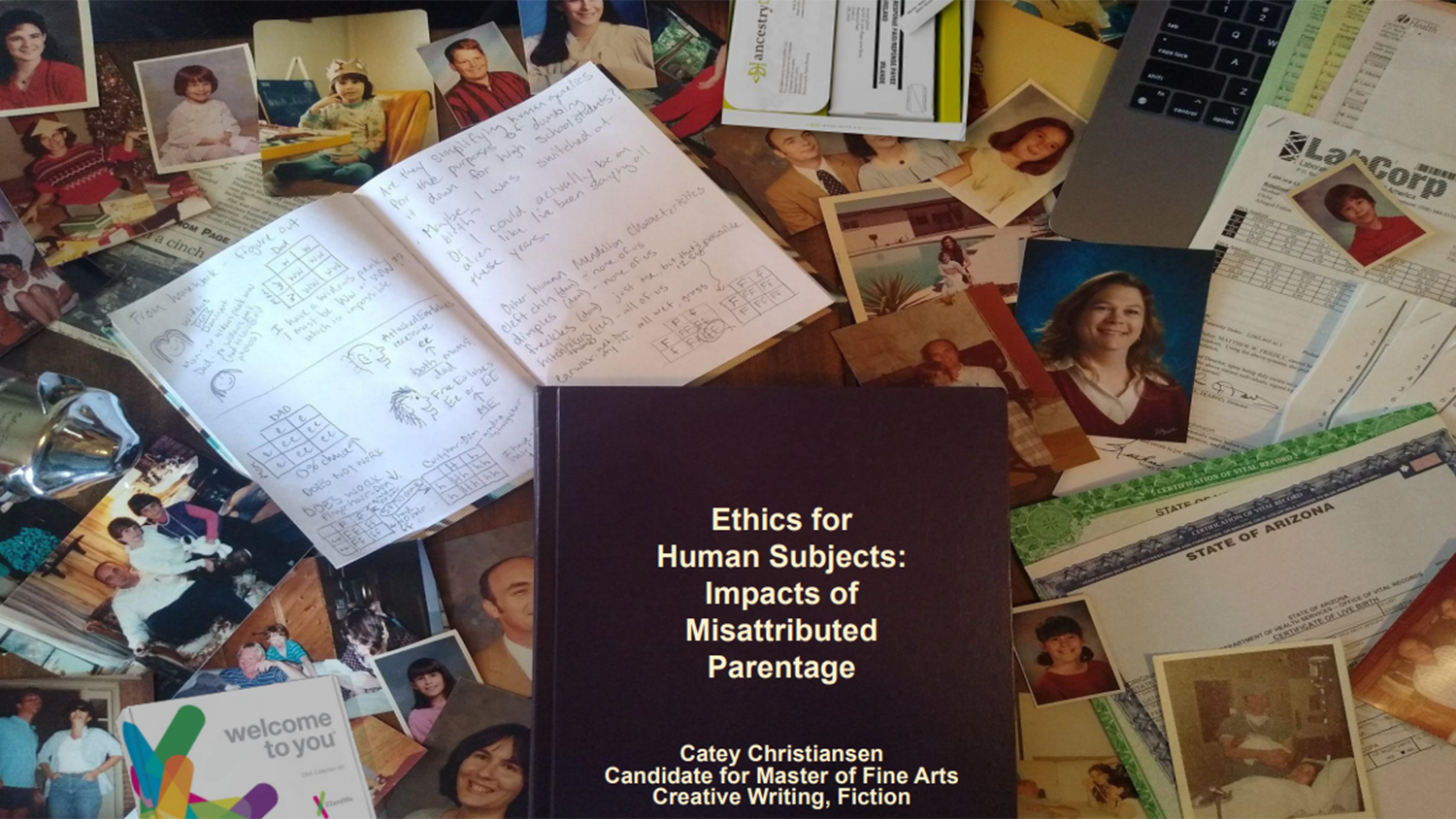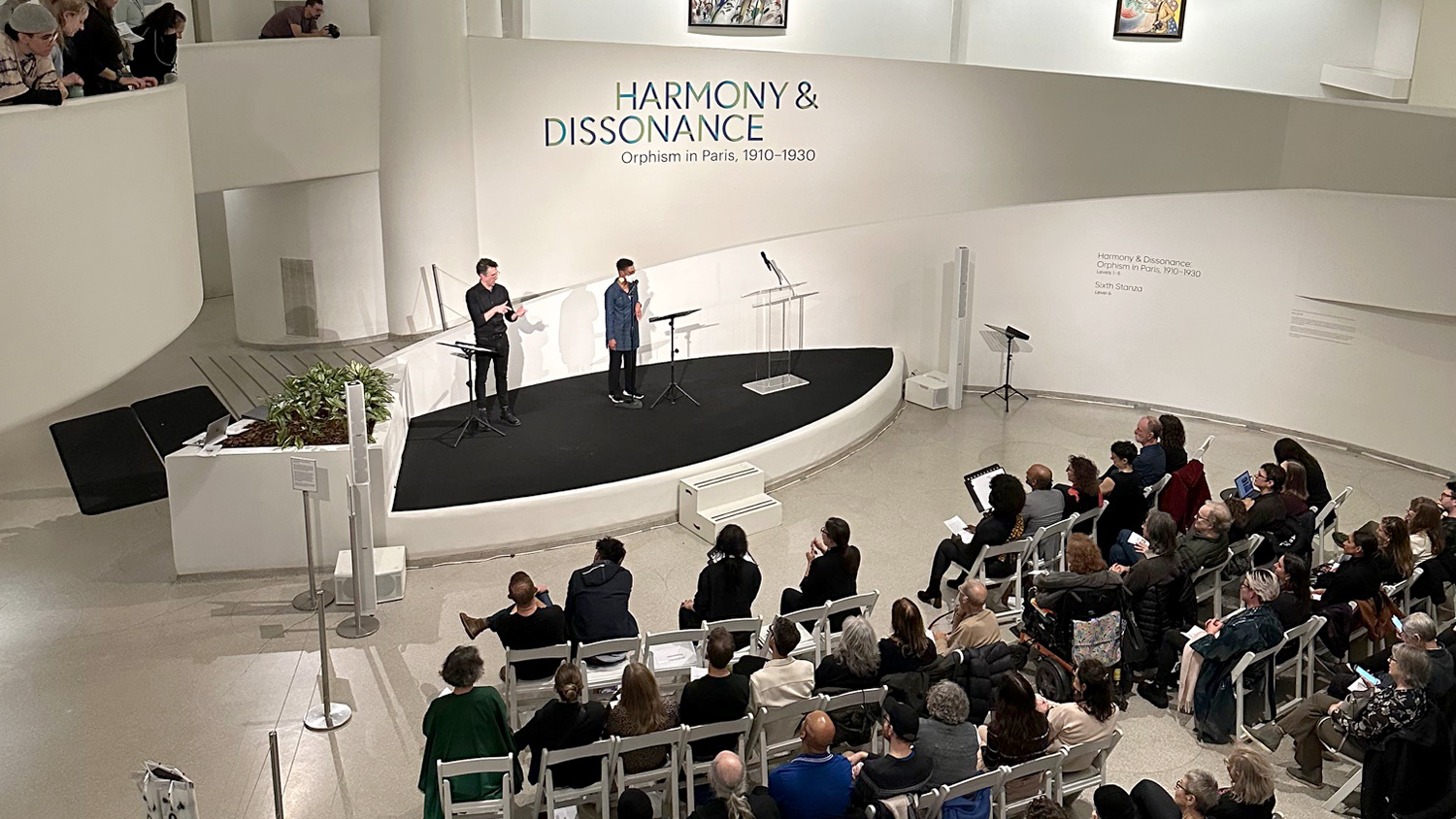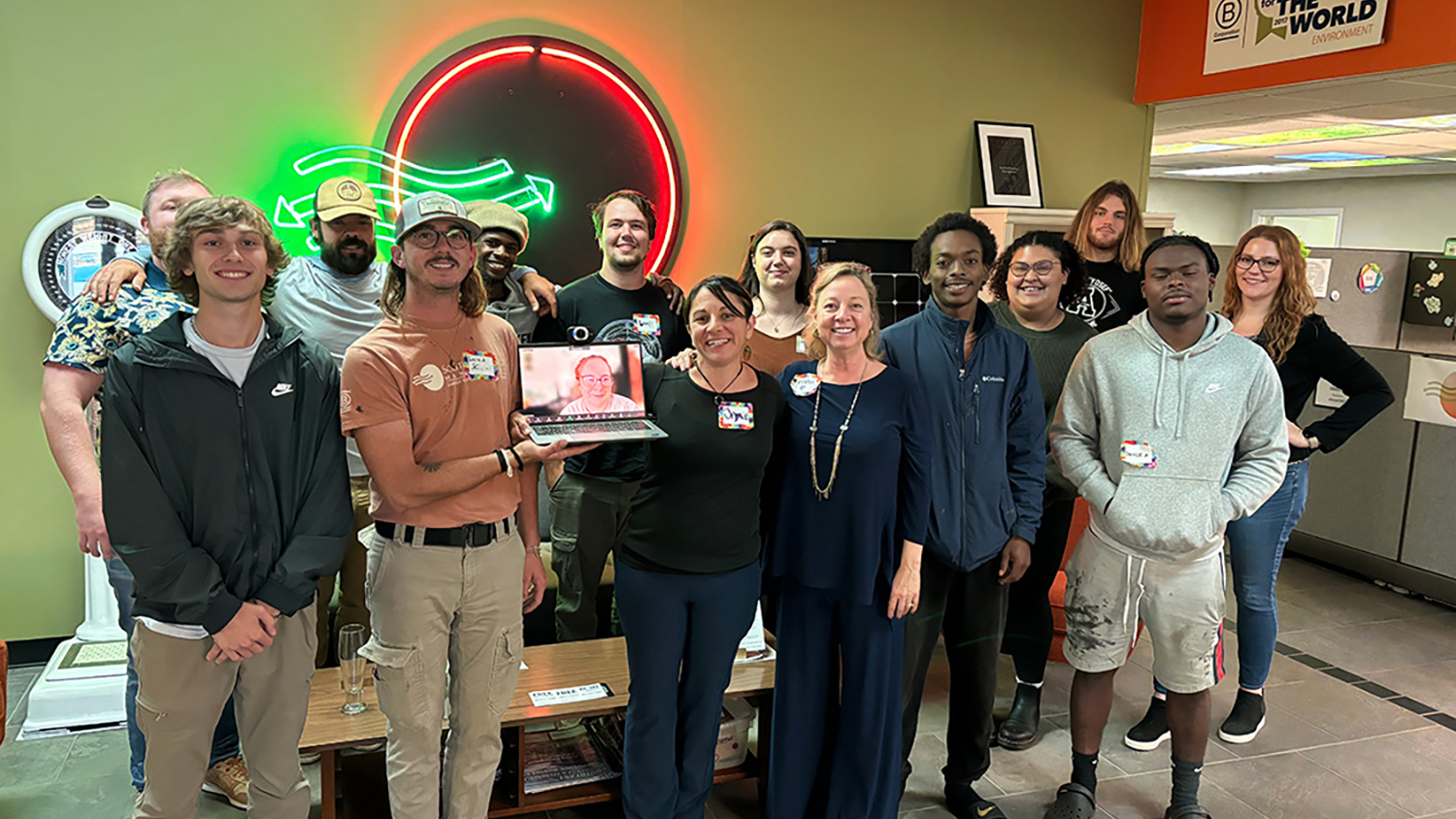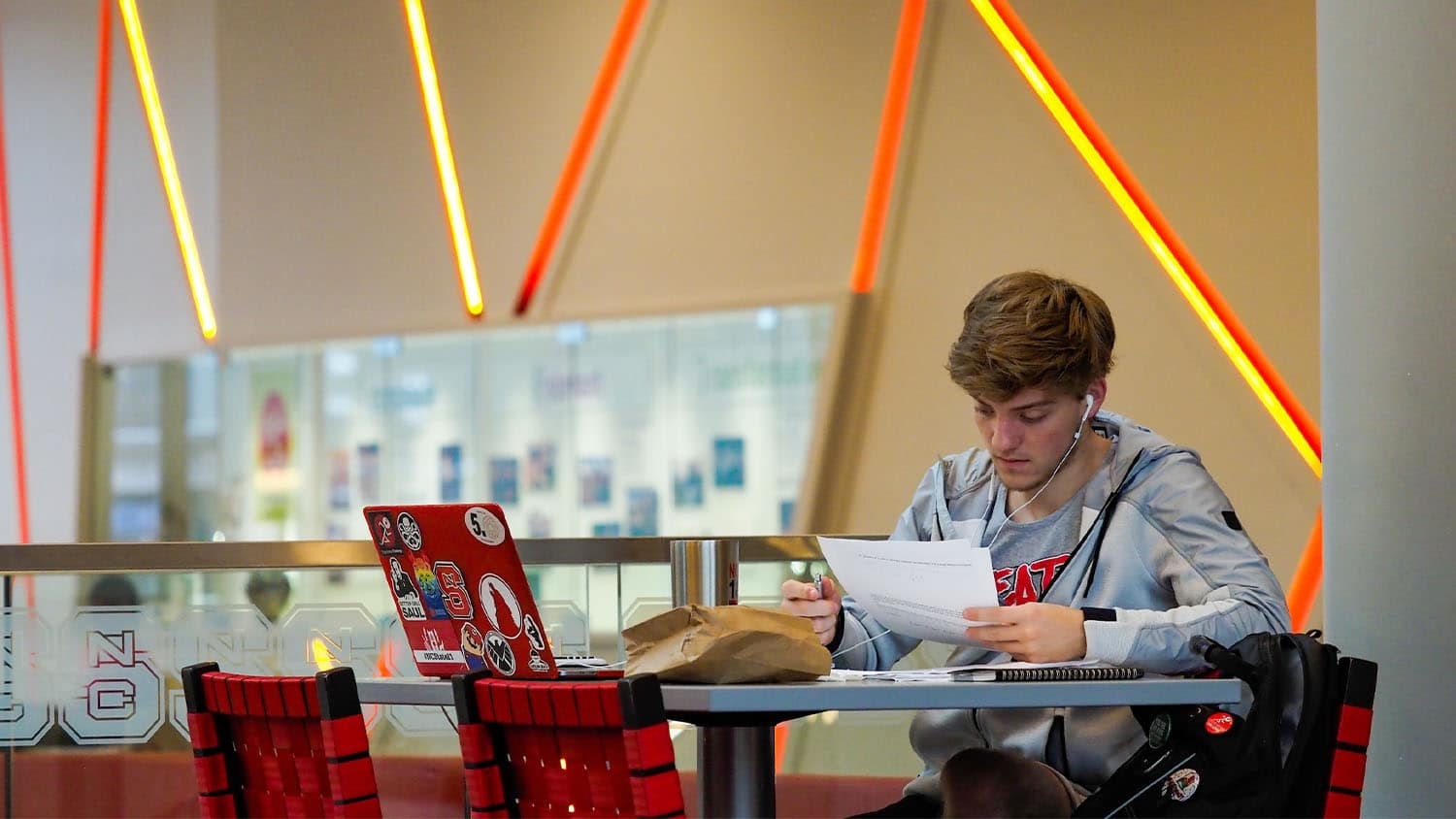MFA Student Named a Three Minute Thesis Winner
How do you distill a novel, one with strong connections to your own life, into a three-minute summary? That’s the challenge Catey Christiansen faced in sharing her master’s thesis as part of NC State’s Three Minute Thesis (3MT) competition.
Christiansen, who is pursuing a Master of Fine Arts in creative writing with a specialization in fiction, didn’t just prevail. She recently clinched the first-place, co-winner honor in the competition, a research communication contest hosted by the Graduate School.
Christiansen’s research project, “Ethics for Human Subjects: Impacts of Misattributed Parentage,” is a novel tentatively named “Your Nobody.” It is also a case study about “the impact of learning of misattributed parentage in the moment and aftermath of discovery,” says Christiansen, one of 10 finalists in this year’s competition.
She is all too familiar with that kind of tug-of-war. One of the three main characters in her novel is a fictionalized version of herself. When she was 15, Christiansen learned through her birth parent, a family friend, “the dad who raised me was not my biological father. But he could never know.”
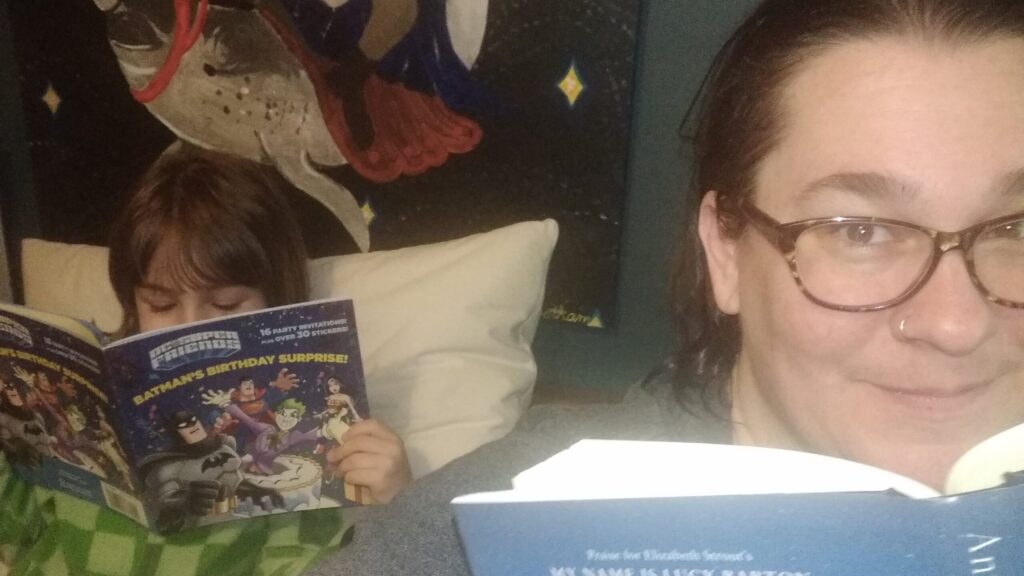
The novel’s other characters have different stories. A second character, based on the experience of the author’s half-sister, knew about her adoption at an early age. The third character was 41 when a DNA test revealed he was adopted. The test also provided surprising information about his ethnicity.
“Learning your genetic background is not what you expected can be a damaging and revelatory event for all parties involved,” Christiansen says. “This project aims to contribute to the healing of families who struggle with such situations.”
Christiansen says the novel started as a memoir, became nonfiction after she interviewed her half-sister and then changed ultimately to fiction. “I knew the story was much bigger than just me and so I widened the scope and approached it through the novel form,” she says.
To shape her characters, Christiansen relied on myriad resources. They ranged from personal experiences and interviews with her family members to adoption documents and stories shared with the author through a “DNA Surprises” support group.
In telling her characters’ stories, Christiansen says she “explores how mixed-genre literature, performativity and perspective can effectively represent the trauma that occurs in these moments of discovery.“
She adds that the novel also tackles some tough research questions. Among them is, “What is the mental and physical toll of keeping secrets?”
Christiansen is shocked she won the 3MT competition. In the contest’s seven-year history at NC State, she’s the first winner from the College of Humanities and Social Sciences.
”I entered this contest purely to challenge myself at something I find incredibly challenging — speaking with brevity and concision about my work,” she says.
Now her goal is completing and publishing the novel. By the end of 2021, she will finish drafting the two remaining sections and begin revising her work. In March, she will defend her thesis.
“I entered this contest purely to challenge myself at something I find incredibly challenging — speaking with brevity and concision about my work.”
Meanwhile, she will continue teaching — all students in the MFA program receive full funding in the form of a graduate assistantship — and taking classes. Her favorite, she says, is the fiction-writing workshop because she loves reading her classmates’ work; discussing their craft; and having “a room of friends” help improve her writing.
Asked what she values most about her time at NC State Christiansen says: “My cohort and faculty connections. Hands down.”
Looking ahead, Christiansen says in addition to “finding a home for my novel,” she is applying to a few Ph.D. programs. “Regardless of my publishing trajectory,” she adds, “I imagine teaching will continue to be a part of my life.”
This post was originally published in College of Humanities and Social Sciences.
